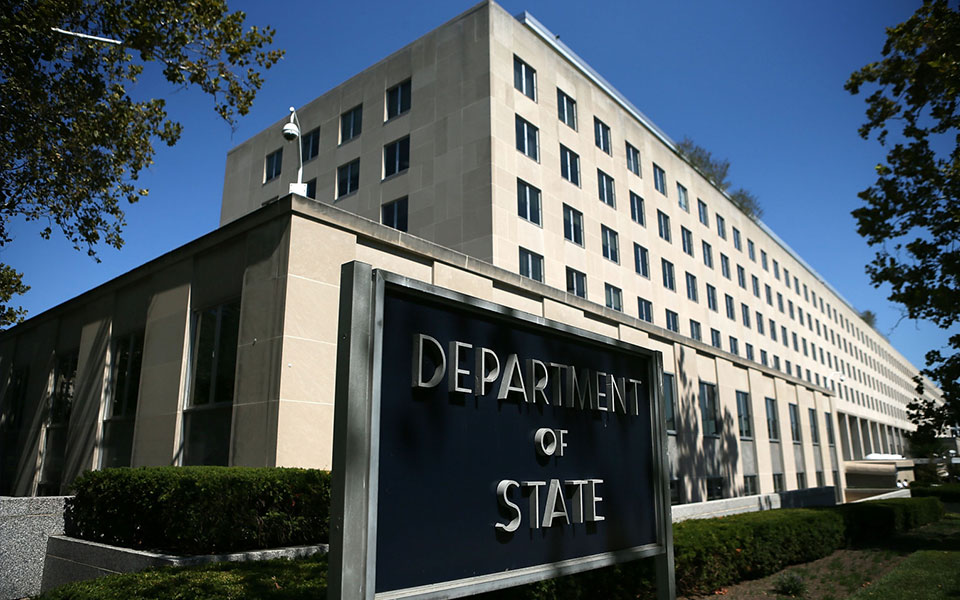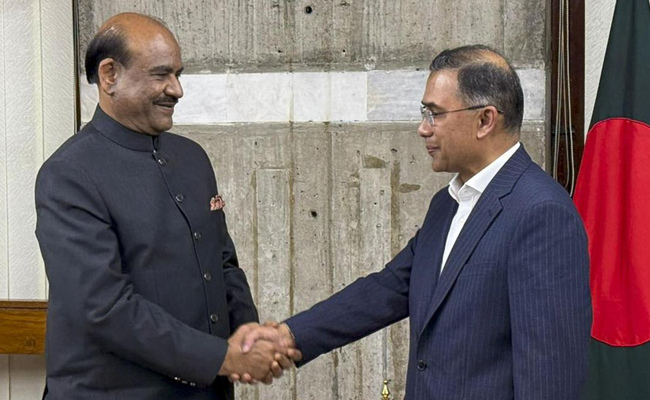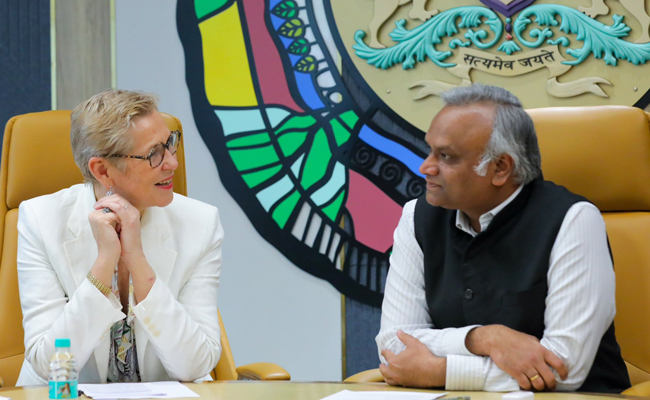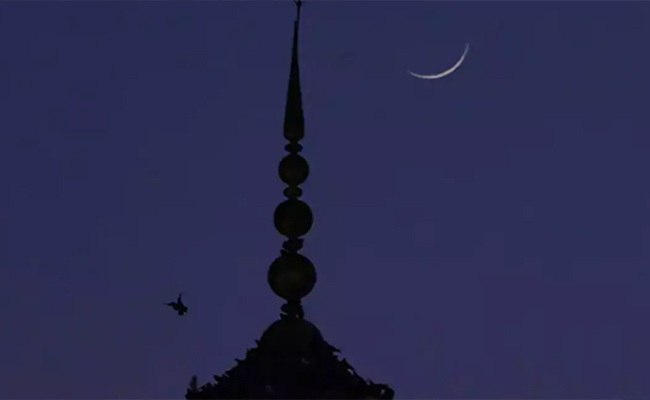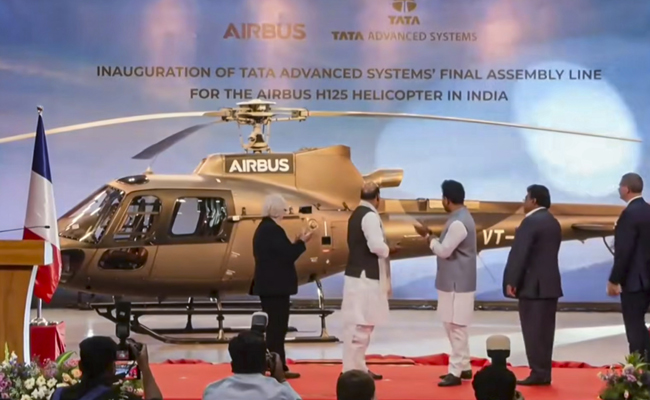New York, April 21: The US State Department's human rights report criticises India for violations by police and security forces while at the same time noting the "serious abuses" by separatist insurgents and terrorists.
"The most significant human rights issues included police and security force abuses, such as extrajudicial killings, disappearances, torture, arbitrary arrest and detention, rape, harsh and life-threatening prison conditions, and lengthy pretrial detention," the Country Reports on Human Rights Practices for 2017 released in Washington on Friday said.
However, it also said: "Separatist insurgents and terrorists in the state of Jammu and Kashmir, the northeast, and the Maoist-affected areas committed serious abuses, including killings and torture of armed forces personnel, police, government officials, and of civilians, and recruitment and use of child soldiers."
The publication of the report at a time when US President Donald Trump and his administration have been accused by adversaries in the US of trying to roll back civil rights and of attacking the media, said that in India "censorship and harassment of media outlets, including some critical of the government continued".
The report, which also criticised several other countries, was challenged by reporters for US media outlets at a news briefing by Michael G. Kozak, the Ambassador of the Bureau of Democracy, Human Rights, and Labour.
In a barrage of questions, reporters raised President Donald Trump's criticism of US media as "an enemy of the people" and calls for revising libel laws; excluding transgender people from the military; refusal to accept refugees, and travel bans on certain countries seen by courts as directed at a particular religion.
"How do you not open yourself up to charges of hypocrisy, and how effective do you think you can be at leading by example," a US news service reporter asked Kozak.
Kozak replied: "The countries that we criticize for limiting press freedom, it's for things like having criminal libel laws where you can be put in jail for what you say... or, in many cases, killing the journalists."
"We make quite a distinction between political leaders being able to speak out and say that story was not accurate or using even stronger words sometimes, and using state power to prevent the journalists from continuing to do their work," he added.
The report took a broad sweep of what it considered the human rights situations, going into details, many of them taken from reports by Indian and foreign watchdog groups.
While critical of India on several issues, the report attempted to bring some balance by also noting the several prosecutions of officials accused of human rights abuses, the free and fair state elections, and an independent media that "generally expressed a wide variety of views".
The report said that a "lack of criminal investigations or accountability for cases related to rape, domestic violence, dowry-related deaths, honour killings, sexual harassment; and discrimination against women and girls remained serious problems".
It also cited, "violence and discrimination based on religious affiliation, sexual orientation, and caste or tribe".
The report directed particular criticism against the government restrictions on some NGOs receiving foreign funding, specifically mentioning Compassion International, a Christian organisation that has the backing of US politicians and officials.
Legal restrictions on religious conversion in eight states, was another matter of concern in the report.
"Some journalists and media persons reportedly experienced violence and harassment in response to their reporting," the report said and cited a Press Council report that at least 80 journalists had been killed since 1990 and only one conviction had been made.
The State Department report said that journalists and activists, particularly women, were subjected to online and mobile harassment, with some getting thousands of abusive tweets from trolls.
While highlighting the periodic shutdown of Internet services, particularly in Kashmir, and prosecutions for online postings, the report noted that the "mass electronic surveillance data-mining programme" of the Central Monitoring System (CMS) which "continued to allow governmental agencies to monitor electronic communications in real time without informing the subject or a judge".
Let the Truth be known. If you read VB and like VB, please be a VB Supporter and Help us deliver the Truth to one and all.
New Delhi (PTI): Lok Sabha Speaker Om Birla on Tuesday attended the swearing-in ceremony of new Bangladesh Prime Minister Tarique Rahman in Dhaka, and said India stands ready to support Bangladesh's endeavours to build a democratic, progressive and inclusive nation.
Separately, the speaker called on the new Bangladesh prime minister and conveyed the wishes of Prime Minister Narendra Modi.
He also handed over an invitation from Prime Minister Modi to Rahman to visit India, officials said here.
“Glad to attend the swearing-in ceremony of the new government of Bangladesh led by Prime Minister Tarique Rahman in Dhaka today. India stands ready to support Bangladesh’s endeavours to build a democratic, progressive and inclusive nation,” Birla posted on X.
Bangladesh High Commissioner to India, Riaz Hamidullah, said in a post on X, “Prime Minister Tarique Rahman conveys his greetings to India and PM Narendra Modi to the visiting India Lok Sabha Speaker Om Birla at a courtesy meet following the swearing-in of the new government.
“Speaker Birla conveyed wishes and an invitation to India. Both leaders expressed optimism to work together for the well-being of the people of Bangladesh and India, pursuing a people-centric menu of cooperation.”
Birla also met Maldives President Mohamed Muizzu, Bhutan Prime Minister Tshering Tobgay and other leaders on the sidelines of the event.
Led by Rahman, the Bangladesh Nationalist Party (BNP) swept to power with a two-thirds majority with 49.97 per cent votes and 209 seats in the polls held on February 12, results for which were declared on February 13.
The Jamaat-e-Islami, which was opposed to Bangladesh's independence from Pakistan in 1971, registered its best-ever performance with 31.76 per cent votes and 68 seats.
The National Citizen Party (NCP) secured the third-highest number of seats, six, and 3.05 per cent votes.
Bangladesh had invited Narendra Modi to the ceremony, but the prime minister could not attend the event as he was scheduled to hold talks with French President Emmanuel Macron in Mumbai on Tuesday.
On reaching Dhaka, Birla said the swearing-in of Rahman was an important moment that would strengthen people-to-people relations and shared democratic values between the two neighbours.
“Honoured to be in Dhaka representing India at the swearing-in ceremony of the new government led by Tarique Rahman as the prime minister. It's an important moment that will strengthen people-to-people ties and shared democratic values between our two nations,” Birla said.
Birla was accompanied by Foreign Secretary Vikram Misri and other officials.

